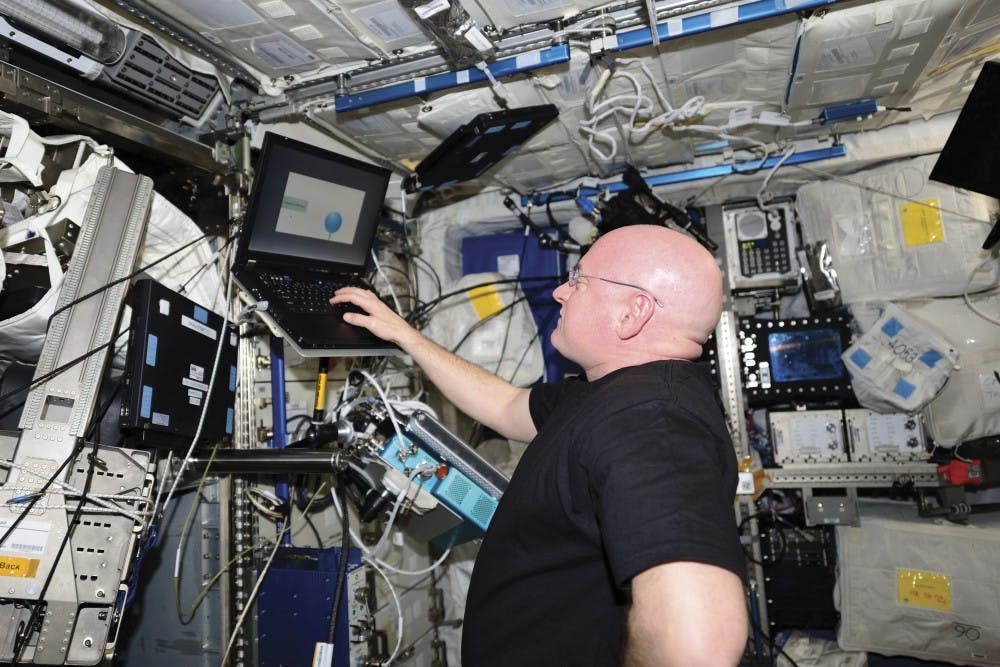
Penn Medicine’s twin study aims to look at new areas of physiology of which space may have an effect, such as sleep, memory and emotions. | Courtesy of NASA
Twins are normally compared for their similarities and differences, but only one set of twins can say they have been studied for their reactions to space flight versus time on Earth.
Astronaut Scott Kelly, who spent 382 consecutive days in space — the record for any American — completed a one-year mission on the International Space Station this March 1. He was analyzed for the effects of microgravity on his functioning in comparison with his identical twin brother who remained on Earth, retired astronaut Mark Kelly. The brothers came up with the idea for the study.
Perelman School of Medicine professors Mathias Basner, David Dinges and Ruben Gur have been working with NASA to research the cognitive and behavioral effects of space flight, or lack thereof, on the twins.
“Now that the in-flight data collection has been completed, the post-flight data collection has commenced,” Dinges said. The scientific investigators are not allowed to talk about their findings yet as they are still in the process of making sense of them — the data is on lockdown by NASA until the Kellys have been debriefed. “Because the twins’ study involved taking their bodily fluids to analyze them for genomics, metabolomics and microbiomics, the Kellys will have to agree to what aspects of their biology are shared before the findings are released,” Dinges added.
The findings from the twins’ study should be released by the next meeting in February 2017.
Basner said that they have been working with NASA for years and that the process of doing research on the ISS is very professional, but not always easy due to many constraints. He said that it is a pleasure to work with the twins.
The Penn research project is just one of 10 of the studies being conducted on the brothers. The team from Penn provided cognitive and behavioral data on sleep, sleep quality and different aspects of cognitive functions including emotions, abstract thinking and memory.
“No one really knows what effects space flight has in these domains,” Dinges said.
The researchers had previously completed a study of 24 astronauts who stayed in space for approximately six months each. Dinges said that the six-month studies will provide the data set by which they can compare what happens when a person stays in space longer.
Dinges is also planning a separate project for the occasion of another one-year space mission, which he said is likely to occur in the next two to three years. He anticipates having their prior measurements and what they’re currently developing for space flight included in later missions .
The Penn researchers are in a special position because not many other investigators have had access to flight time measurements. This allows the team to utilize the same technical procedures as in the past.
“We hope our investigation is useful to NASA in terms of scientific discovery so that we learn novel things about what it means to live in microgravity and in understanding what risks to health and behavior might occur in space flight and how you would mitigate those factors,” Dinges said.
The information learned would be beneficial to know for a mission to Mars, as it would take more than a year. Additionally, there may be fundamental discoveries made with the physiological work of how the human body functions.
“I’m confident that there will be novel and important findings coming from the study,” Dinges said.
The Daily Pennsylvanian is an independent, student-run newspaper. Please consider making a donation to support the coverage that shapes the University. Your generosity ensures a future of strong journalism at Penn.
DonatePlease note All comments are eligible for publication in The Daily Pennsylvanian.








